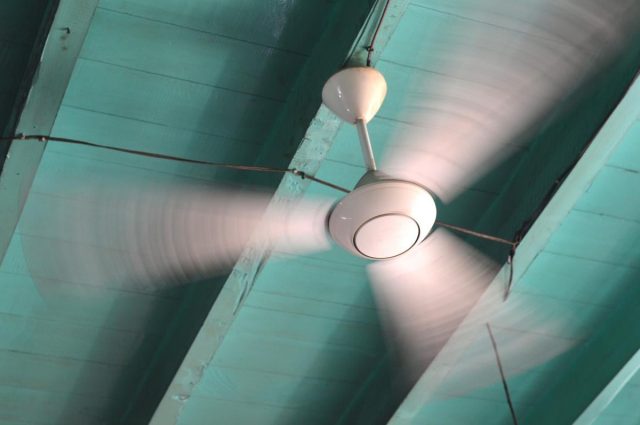However, use of fan in hot and dry environment yielded increase in rate-pressure product
By Elana Gotkine HealthDay Reporter
FRIDAY, Nov. 8, 2024 (HealthDay News) — The benefits of fan use, skin wetting, or both on cardiac strain vary with temperature and humidity, according to a study published in the Nov. 7 issue of the New England Journal of Medicine.
Georgia K. Chaseling, Ph.D., from the Montreal Heart Institute, and colleagues examined the effects of fan use, skin wetting, or both on heat-induced cardiac strain in older adults with (27 adults) and without (31 adults) coronary artery disease during exposure to high temperatures with high or low relative humidity. Participants sat for three hours in an environment with a mean temperature of 38.0 ± 0.1 degrees Celsius and a mean relative humidity of 60 ± 1 percent or a mean temperature of 45.0 ± 0.1 degrees Celsius and a mean relative humidity of 15 ± 1 percent.
The researchers found that after exposure to the hot and humid environment for three hours, heat-induced increases from baseline in the rate-pressure product were reduced by fan use, skin wetting, and fan use plus skin wetting (mean difference in change versus control: −517, −468, and −750 heart beats per minute [bpm] x systolic blood pressure [mm Hg], respectively). Assessment of fan use during exposure to the very hot and dry environment was ended after 14 participants were examined due to the increase in the rate-pressure product from baseline versus controls (mean difference in change: 2,139 bpm x mm Hg). Skin wetting reduced the heat-induced increases from baseline in the rate-pressure product (−478 bpm x mm Hg). For those with and without coronary artery disease, the results were broadly similar.
“The study has shown that the weather conditions affect the type of cooling strategy that should be used — a vital piece of information that will help older people to stay safe in heatwaves,” coauthor Daniel Gagnon, Ph.D., also from Montreal Heart Institute, said in a statement.
Copyright © 2024 HealthDay. All rights reserved.



















